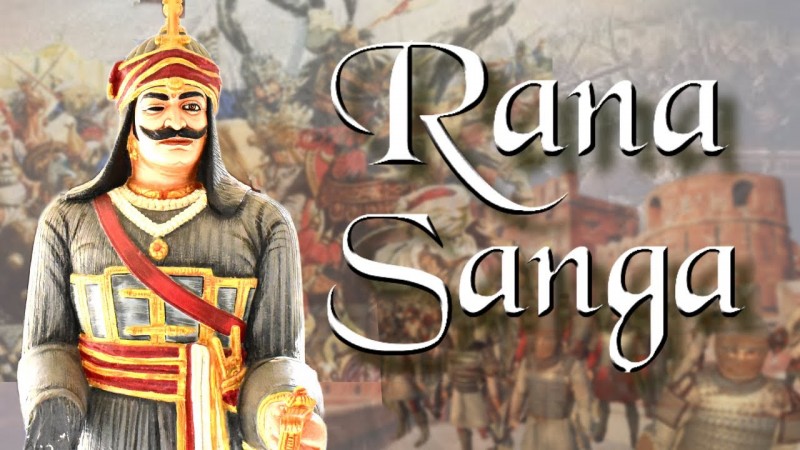
In the annals of Indian history, the name of Rana Sanga shines brightly as a formidable warrior and an embodiment of valor. His life was marked by his relentless pursuit of glory on the battlefield, and his legacy remains etched in the pages of time. Rana Sanga, the 16th-century ruler of Mewar, stands as a symbol of resilience and determination, as evidenced by his numerous battles and campaigns that left an indelible mark on the landscape of Indian history.
Rana Sanga ascended to the throne of Mewar in 1508. From the very beginning, he exhibited a strong desire to expand his dominion and strengthen his realm. His reign was marked by a series of battles and conflicts that tested his mettle and leadership skills. His notable engagements include the Battle of Khanwa and the Battle of Dholpur, both of which stand as defining moments in his tumultuous journey.
The Battle of Khanwa, fought in 1527, is perhaps one of Rana Sanga's most famous encounters. It pitted him against the formidable Babur, the founder of the Mughal Empire in India. Rana Sanga's determination to unify the Rajput clans against the Mughal incursion led to a fierce clash on the plains of Khanwa. Despite his tactical brilliance and an army of around 80,000 soldiers, Rana Sanga faced defeat. Historical accounts attribute his loss to Babur's military tactics and the use of artillery, which turned the tide against the Rajput forces.
Undeterred by this setback, Rana Sanga's spirit remained unbroken. His battles were not limited to the Mughals alone; he also faced off against regional powers. The Battle of Dholpur in 1516 was another pivotal engagement that showcased his resilience. In this battle, Rana Sanga triumphed against the combined forces of Ibrahim Lodi of Delhi and Mahmud Khilji of Malwa. This victory bolstered his reputation as a formidable force in the region.
Rana Sanga's military prowess was not his only legacy; his commitment to preserving Rajput honor and valor was equally remarkable. He sought alliances with other Rajput rulers to create a united front against external threats. His efforts to unify the Rajput clans against foreign invaders reflected his deep-rooted commitment to safeguarding the honor and independence of his people.
While Rana Sanga's battles were a testament to his courage and determination, they also highlighted the complex dynamics of medieval India. The shifting alliances, rivalries, and the emergence of the Mughal Empire as a dominant force shaped the course of history during his time.
Rana Sanga's life came to an end in 1528, but his legacy continued to inspire generations to come. His battles, though marked by victories and defeats, underscored his unyielding spirit and commitment to his people. He left an indelible mark on the history of Mewar and the broader narrative of India's struggle for sovereignty.
As we look back on the life of Rana Sanga, we are reminded of the valor that defined his era. His battles continue to be a source of inspiration, reminding us of the courage and determination required to forge a legacy in the face of adversity.
New Development Bank Plans Inaugural Indian Rupee Bond by October
Union Minister Nitin Gadkari Launches Bharat NCAP to Enhance Vehicle Safety Standards